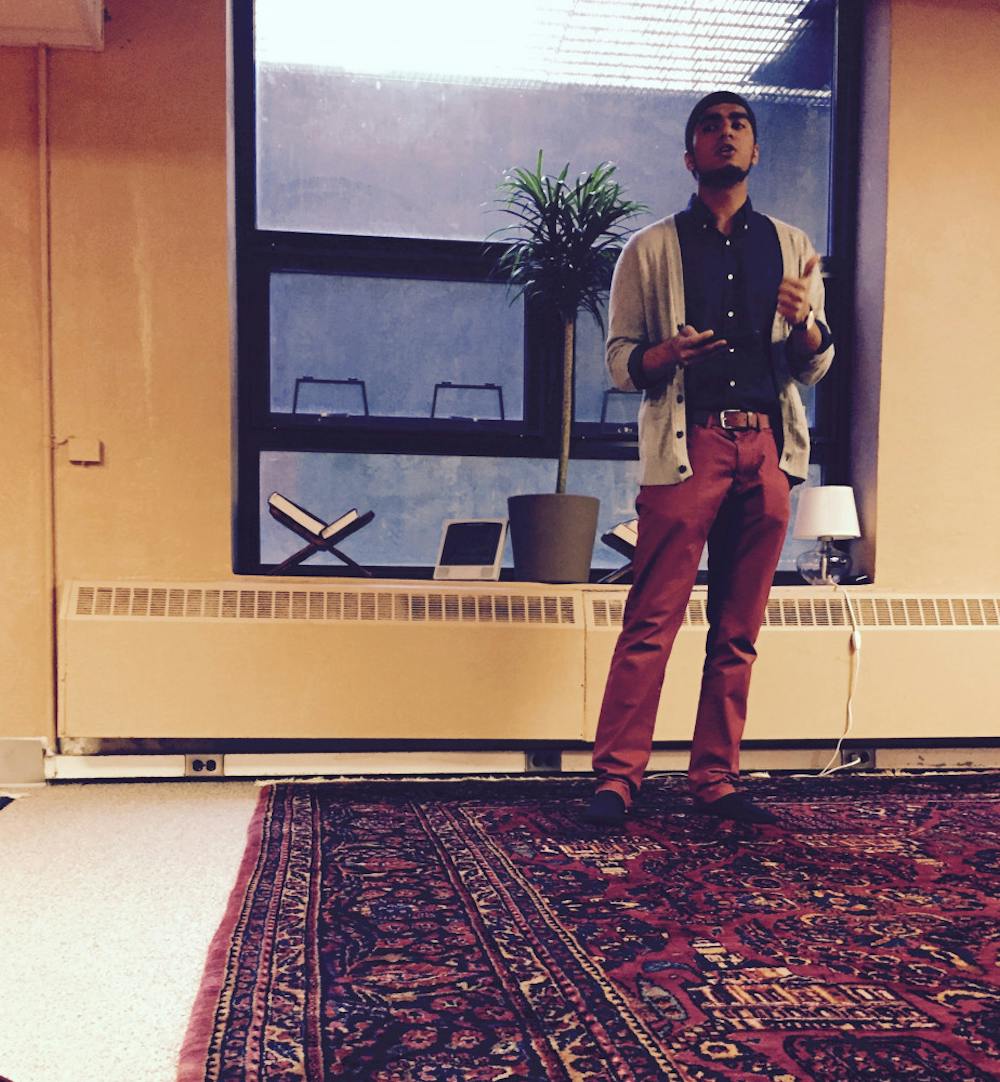On the morning of April 23, I found myself walking with a group of Muslim students from Faunce Arch to India Point Park for our end-of-year picnic. It was the last major organized event hosted by the Brown Muslim Students Association, and it would likewise be the last one I would attend as an undergraduate. By some sort of cosmic joke, the weather was remarkably not conducive to a picnic vibe. There was a light drizzle, and the air was firmly chilly. “God is the best of planners,” I thought to myself.
When I was admitted to Brown, I decided to matriculate only after visiting the Muslim community and confirming for myself that it might be a home for me. I was raised as a practicing Muslim by two loving parents, and I sought a new home in college that would accept me and nurture my Muslim identity.
For the most part, my experiences with legitimate spirituality — moments wherein my heart trembled out of wonder for God and His creation — were sparse prior to Brown. Islam was a system of rules that I followed. If I followed them properly, I would accrue enough “good boy points” to go to heaven, where I would eat ice cream and play basketball for eternity. A genuine relationship with God — knowing Him, understanding Him, seeking Him, loving Him — was not quite part of the picture, beyond his role as a rule-maker.
Given Brown’s liberal, perhaps godless, reputation as a school, I was somewhat skeptical of Brown as a place to foster my Muslim identity. I emailed the Muslim chaplain, David Coolidge — a warm, deeply affectionate soul — and he quipped, “Brown is a good place to be a Muslim.” I chose to trust him.
As it turns out, the last four years have been a vessel for the most important spiritual transformations of my adult life. I worked closely with Coolidge, and thereafter I studied with Adnan Wood-Smith, also a Muslim chaplain here at the University, who blends together deeply spiritual and cerebral approaches. From these gentle teachers, I learned to take ownership of my agency as a Muslim and as a wayfarer on a spiritual journey. I learned, more than anything else, that I should pursue loving, knowing and worshipping my creator and seek him in everything that I do.
I learned to see Islam as a conduit to finding God in my relationships, my dreams and my academic pursuits.
Soon, my days were organized around spending time with other wayfarers in the Muslim community at Brown. For the first time in my life, my experience with a Muslim community focused on real interactions and relationships with Muslims. I was one of many souls seeking meaning. We learned to patiently understand and engage with one another in pursuit of a greater understanding of each other and a greater understanding of God.
Moving on is hard. I know that a community of patient wayfarers and eager teachers won’t be easily accessible after I make my slow, weighty departure from College Hill.
But on that morning of April 23, I was just focused on having a good time. We made our way across campus, and I routinely stopped to look back. I wasn’t actually concerned about people who had fallen behind; I just wanted to soak it all in: their faces, their smiles, their warmth.
The picnic itself was just like any other nice picnic. Our laughter filled the open air of India Point Park, our outpouring of love just earnest enough to arouse the jealousy of the Providence River. I primarily spent time with underclassmen that day, still feeling out ways to get them excited; it was now my responsibility to make someone else feel accepted. A friend chimed into the conversation to say, “Yeah, this community is nice! I was a little nervous, but Abid made me feel welcome.” In her attempt to reassure tentative freshmen, she comforted a vulnerable senior. I felt as though I was leaving behind something good. I felt an optimism that had a twang of closure. The sun finally came out as we were packing up, and my internal warmth met that of the sun at my skin.
I thought to myself, “God is the best of planners.”





